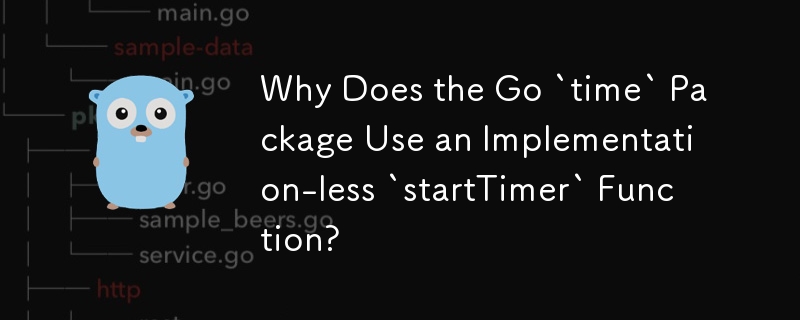

When browsing through the code of the "time" package to examine the function After(d Duration) <-chan Time, you come across a peculiarity:
func After(d Duration) <-chan Time {
return NewTimer(d).C
}
func NewTimer(d Duration) *Timer {
c := make(chan Time, 1)
t := &Timer{
C: c,
r: runtimeTimer{
when: nano() + int64(d),
f: sendTime,
arg: c,
},
}
startTimer(&t.r)
return t
}The startTimer function doesn't seem to have an implementation own:
func startTimer(*runtimeTimer)
Questions:
Answers:
Location of the actual code:
The code of startTimer is in the following assembly routine defined:
//go:linkname startTimer time.startTimer
// startTimer adds t to the timer heap.
func startTimer(t *timer) {
if raceenabled {
racerelease(unsafe.Pointer(t))
}
addtimer(t)
}Abstract methods in Go:
In Go, function declarations can omit the function body. These declarations only specify the signature of a function implemented outside of Go, e.g. B. as an assembly routine.
Reasons for the design:
Not all programming languages can fully express their own runtime. Parts of the Go runtime and standard library are written in C, parts in assembler, and others in ".goc", a not comprehensively documented mix of Go and C.
The above is the detailed content of Why Does the Go `time` Package Use an Implementation-less `startTimer` Function?. For more information, please follow other related articles on the PHP Chinese website!




